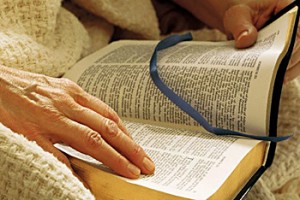Catholicism has never been number-shy in its teachings. Confess a sin? Ten Hail Marys. Looking to convert? Get ready for a slew of Sunday or Bible school classes, then 1. Baptism, 2. Confirmation, and 3. First Communion. If your list isn’t long enough yet, try being baptized on an Easter Sunday. But what is a Catholic’s final communication with God—what are the steps of engaging with Him in the moments before death?
Should a Catholic choose, upon their death bed they may receive their “Last Rites.” A series of ordered sacraments that emerged in the Apostolic Age, the Last Rites are only given to those who have been gravely injured, are terminally ill, or are nearing death. The Rites begin with Penance, or the forgiveness of the sins, are followed by the Anointing of the Sick (or “Unction of the Sick”), and end with the receiving of the Eucharist.
One finds the words from James 5:14-15 to be the foundation for the process: “Through this Holy Unction or oil, and through the great goodness of His mercy, may God pardon thee whatever sins thou hast committed by evil use of sight (sight, hearing, smell, taste, speech, touch or ability to walk).” Thus, the above scripture wished to anoint those nearing death, or in extreme suffering, so that they could join in a sense of mutual suffering with Christ.
In receiving their Last Rites, said Catholic is meant to look forward to receiving some peace of mind in the face of death; they commune with God at perhaps their most vulnerable state, and yet they also find a new-found sense of strength in what is traditionally termed as Viaticum, the Latin term for “provision for the journey.” In this way, a Catholic’s receiving of the Last Rites doesn’t just conclude a chapter of his life — It simply prepares him for the next.
But the Last Rites shouldn’t be limited in our minds to the image of a Byzantine priest wagging a pot of smoking incense (which is a “thurible,” by the way) in front of the dying, Vatican II style. The Last Rites are, for lack of a better word, alive and well. One woman described the experience of seeing her mother receive her Last Rites in 2011:
“Last month my mother received last rites from her cousin, a Roman Catholic priest. My father, sister and two other cousins were with her [and] my father was surprised to hear my mother reciting the rosary with one of her nieces; he had never heard her pray outside of church. It is an ethical act to put one’s affairs in order: health proxy, power of attorney, legal will, ethical will, etc. But let us also think in terms of our spiritual selves.”

 Last Rites: A Catholic Send-Off
Last Rites: A Catholic Send-Off




 John Mulaney’s “Funeral Planning” on Netflix: No Real Plan
John Mulaney’s “Funeral Planning” on Netflix: No Real Plan

 Composting Bodies Is Now Legal in a Dozen States
Composting Bodies Is Now Legal in a Dozen States














